Key takeaways
- Understanding the complexity of music projects is essential for effective management, including tasks like songwriting, production, and marketing.
- Trello offers a visual and adaptable platform for organizing music projects, making tasks manageable and aiding collaboration.
- Utilizing Trello’s checklists and deadline features enhances accountability and streamlines communication within teams.
- Challenges with Trello include potential clutter from excessive lists and reliance on internet connectivity for accessing project boards.
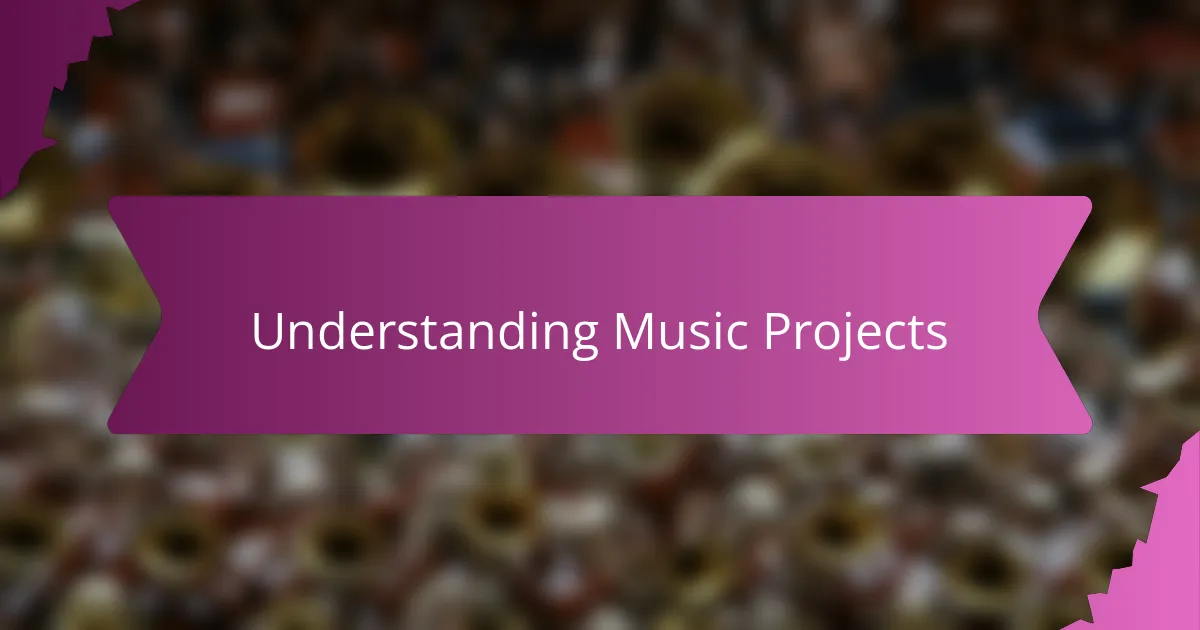
Understanding music projects
Music projects can often feel like a whirlwind of ideas, deadlines, and collaborations. From my experience, understanding the scope and components of a music project is crucial before diving into any management tool. Have you ever found yourself lost in the chaos of track versions and mixing notes, wishing for a clearer structure?
In my early days working on music projects, I learned that they are more than just recording songs. They encompass everything from songwriting and arranging to production, marketing, and sometimes even budgeting. Each phase demands attention and organization, which can be overwhelming without a proper approach.
Recognizing the multifaceted nature of music projects helped me appreciate the need for a system that keeps every detail in check. It’s not just about the music; it’s about managing people, timelines, and creative energy effectively. When you grasp all these elements, managing a project becomes less daunting and more rewarding.
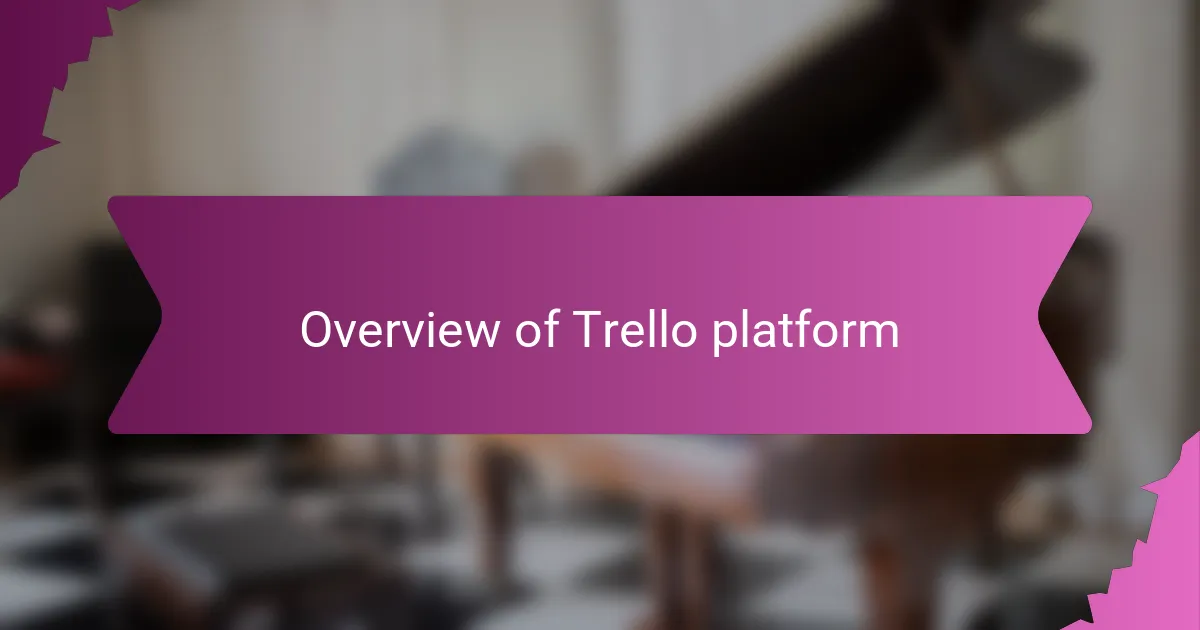
Overview of Trello platform
Trello is a digital workspace designed around boards, lists, and cards that visually organize tasks. What I find really helpful is how this structure mirrors the way my brain tries to break down complex projects into bite-sized pieces. Have you ever wished you could see your entire project at a glance without getting overwhelmed?
When I first started using Trello, I appreciated its simplicity and flexibility. Each card can hold attachments, checklists, comments, and deadlines, which made tracking different stages of my music projects feel less daunting. Isn’t it great when everything you need fits neatly in one place without clutter?
What sets Trello apart for me is its adaptability. Whether I’m planning a songwriting session or managing studio time, I can tweak the boards to fit the unique flow of each project. It’s like having a digital assistant that knows exactly how I want to work, which makes the creative process smoother and more enjoyable.
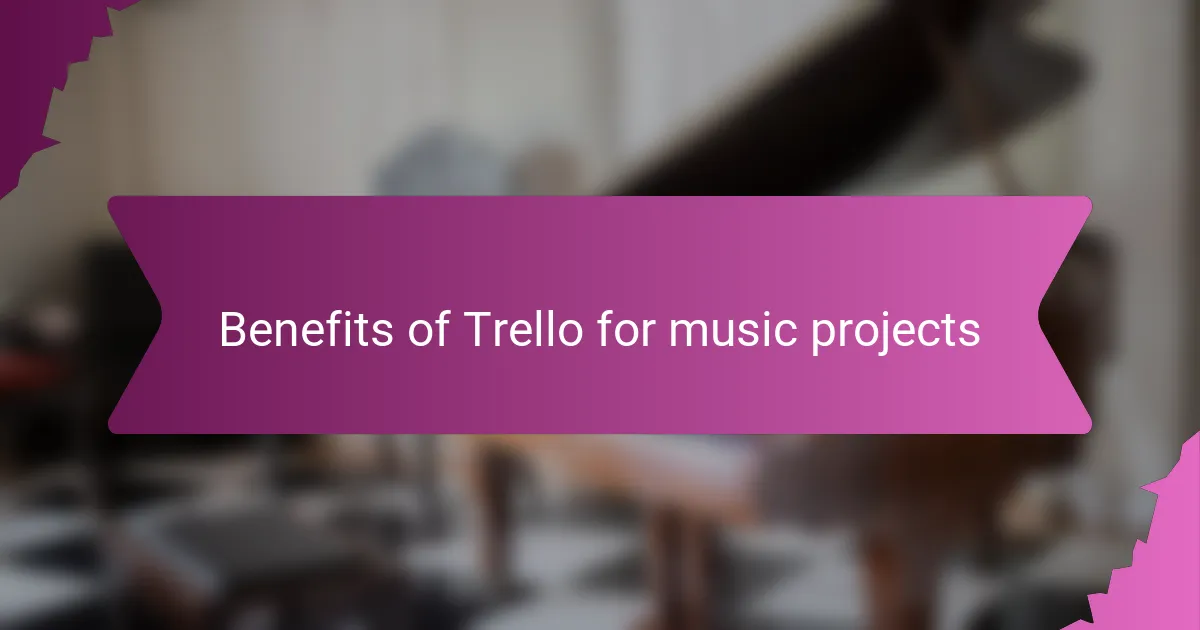
Benefits of Trello for music projects
One of the biggest benefits I’ve found using Trello for music projects is how it keeps my ideas and tasks organized without feeling overwhelming. When I’m juggling songwriting, recording, and promotion all at once, having everything laid out visually on cards helps me stay focused. Have you ever felt buried under endless to-do lists? Trello makes those lists manageable.
Another thing I appreciate is how Trello’s checklists and deadlines hold me accountable. There was a time I missed a crucial mixing deadline simply because I didn’t track it properly. With Trello, I get reminders and a clear timeline, which keeps the project moving smoothly and my stress levels down. It’s like having a personal project manager in my pocket.
I also love how collaboration becomes effortless with Trello. Sharing boards with bandmates or producers means everyone is on the same page—literally. I remember a project where communication faltered until we started using Trello, and suddenly, recording sessions aligned perfectly. Don’t you think clear coordination takes a lot of pressure off creative minds? With Trello, that clarity feels natural.
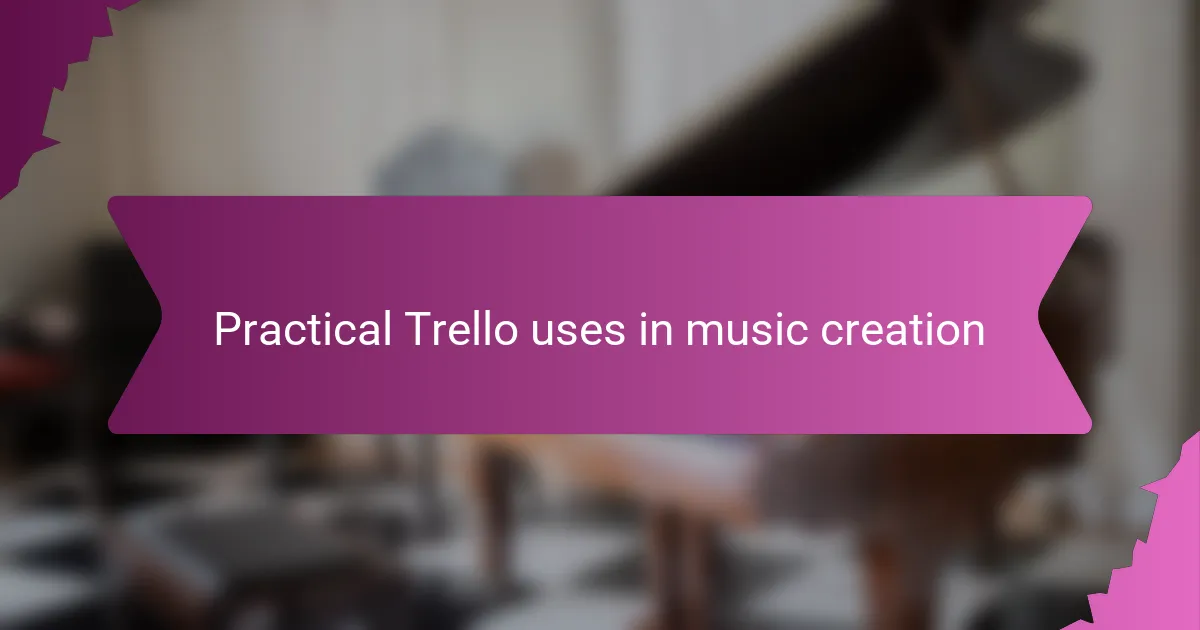
Practical Trello uses in music creation
When I’m deep into a music creation phase, I use Trello to map out each song’s progress—from initial idea to final mix. It feels like having a real-time snapshot of where every track stands, so I’m never guessing what’s next. Have you ever tried keeping that mental checklist only to realize halfway you missed an important step?
I’ve found checklists on Trello invaluable for breaking down complex tasks like arranging or layering instruments. Instead of staring blankly at my screen wondering where to start, I tick off small wins that build momentum. It’s surprising how those tiny progress markers keep my motivation alive during long studio sessions.
Collaborating on compositions also becomes much smoother when every contributor has access to a shared Trello board. I recall a session where ideas and feedback flew fast, and without Trello, we’d have lost track of revisions and collaborators’ notes. Doesn’t having that organized flow make the creative energy feel less chaotic and more inspiring?
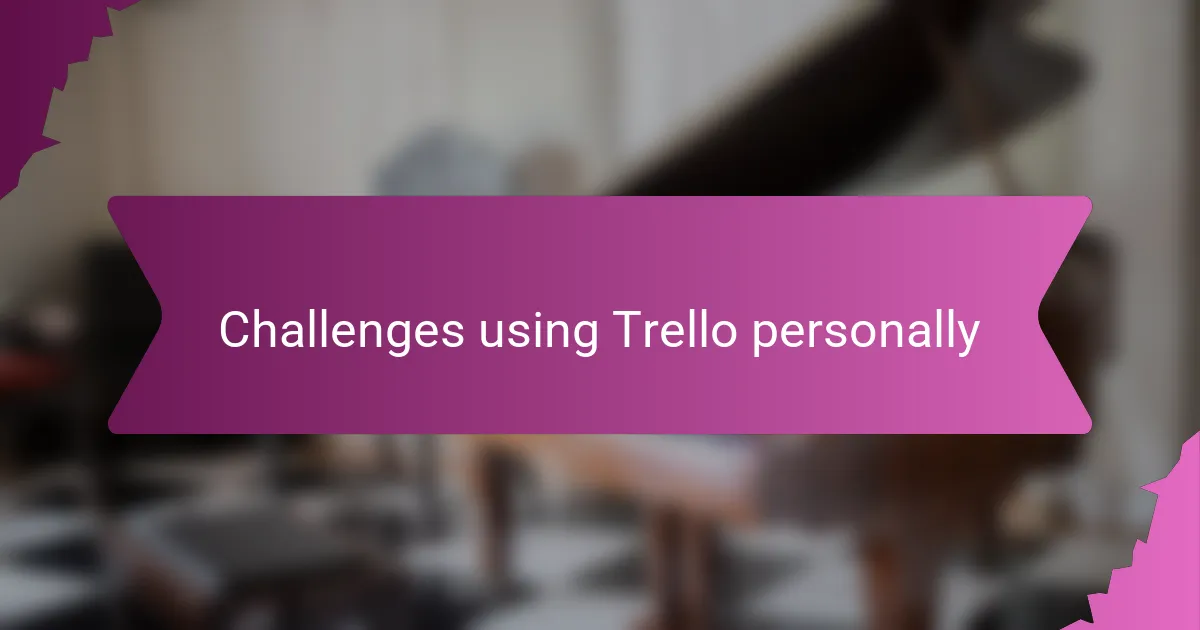
Challenges using Trello personally
While I appreciate Trello’s versatility, I’ve faced moments where its open-ended design felt more like a blank canvas than a helpful guide. Have you ever stared at a dozen empty lists, unsure how to structure your creative chaos? For me, that initial setup sometimes became a hurdle rather than a helper.
Another challenge is balancing the tool’s flexibility with my own workflow quirks. Sometimes, I found myself creating extra cards or lists that piled up without clear purpose, which ironically added clutter instead of reducing it. It made me wonder: am I organizing my project, or just organizing my organizing?
Lastly, Trello’s reliance on internet connectivity occasionally disrupted my momentum during sessions in less connected studios. Losing access to my boards when inspiration struck was frustrating. Have you ever been stuck, realizing your digital system isn’t as portable as your ideas? That experience reminded me to keep backup plans handy.

My experience managing music projects
Managing music projects has always been a mix of excitement and chaos for me. I remember juggling multiple tasks—writing lyrics one moment, coordinating recording sessions the next—and feeling like I was constantly chasing my own tail. Have you ever experienced that rush of creative energy but struggled to keep the practical details from slipping through the cracks?
Over time, I realized that without a clear structure, vital elements like deadlines or collaborator feedback easily got lost. Early on, I missed some important mixing notes simply because I didn’t have a reliable way to track them all. Those moments of frustration taught me how crucial a good management system is to keep both the creative and administrative sides in sync.
At the same time, managing music projects has shown me how much patience and flexibility they require. Every project has its own rhythm, and sometimes unexpected changes demand quick adjustments. I often found myself rethinking my plans on the fly—hasn’t that unpredictability been both the challenge and the thrill of music production? It’s in navigating that balance that the real project management skills emerge.